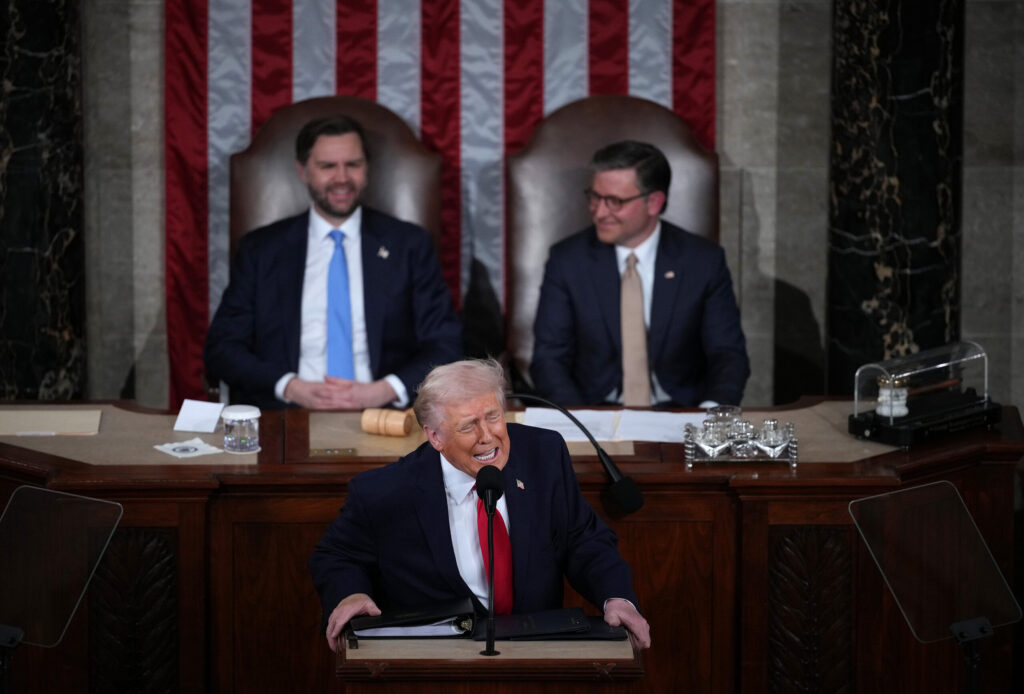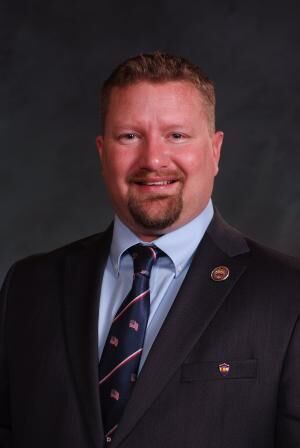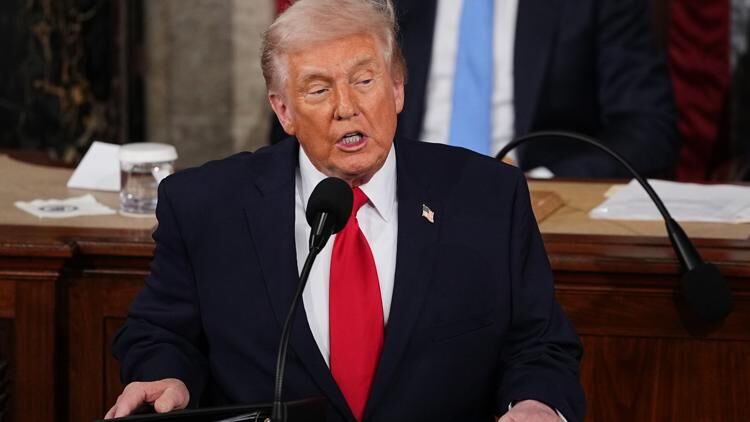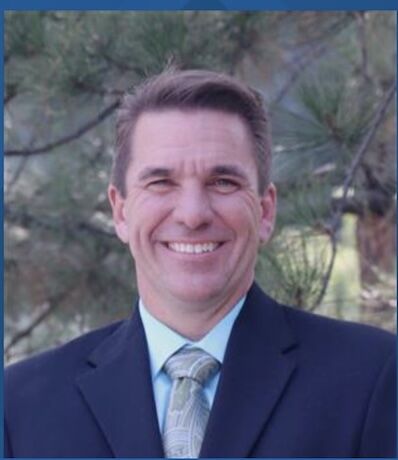Day III: A rousing Iran discussion and a 2016 debate that wasn’t
The Colorado Statesman will be covering the 67th Conference on World Affairs at the University of Colorado Boulder all week with web-exclusive updated overviews of the action. For live coverage throughout the day, follow our reporter Lars Gesing on Twitter @LarsGesing.
***
There wasn’t much that three panelists agreed on when they filled CU- Boulder’s Center Ballroom to capacity during their debate of “Negotiating Nukes with Iran” Wednesday morning.
In fact, the only thing they didn’t exchange were actual jabs.
Valerie Plame Wilson, the former undercover CIA operative whose memorable exposure a decade ago made for many a conspiracy theory, book deal and Hollywood script, joined conservative author and political scientist Robert Kaufman as well as Jim Smith, the former U.S. ambassador to Saudi Arabia.
Their task was monumental: Offer solutions to effectively engage Iran to dismantle its nuclear program. The panel triumvirate had vastly different ideas: Should the rules of engagement resort to flexing military muscles? Or better follow the old doctrine of keeping your friends close and your enemies closer – in this case at the negotiating table?
Kaufman said if he had the choice between a nuclear Iran and the military option, he would always vote for the latter. The political scientist didn’t rule out ground troops as a means to “decapitate the regime in Tehran,” underlining his firm belief that only a change of Iranian leadership would lay the groundwork for any sort of fruitful negotiation.
Smith disagreed forcefully. “If you don’t know what the unintended consequences of such a first step are, try other things first,” he advised.
The former ambassador shared stories from his friends in the region, particularly in Oman: “The leadership in Tehran has come to the conclusion that everything they have tried since 1979 hasn’t worked. They want to try something new. So how do we get there?”
Smith said after 35 years of virtual radio silence on conciliatory channels between Washington and Tehran, it was up to the diplomats to map out a way to end the conflict.
“How do you give [Iran] a ladder to climb off the limb they have gotten themselves on – if in fact this is where they want to go?” Smith asked. He admitted that any agreement would only be validated through Iran’s behavior in the following months and years.
“If Iran is climbing down that ladder, it has masterfully concealed that,” Kaufman jeered.
He called the current Iran framework outrageous, unenforceable and excessively vague. He also criticized the decision to leave the primary enforcement of the multilateral deal to the U.N. Security Council.
“Where do you draw the red line?” Kaufman asked.
“Badmouthing is not helping anyone,” Plame Wilson said. “You have to start somewhere. Could there be a better deal? Yes.”
The former undercover operative spent a lot of her time at the agency trying to prevent a nuclear Iran, something she believes would set off an arms race in the region.
“Diplomatic outreach is not candy for good behavior,” she lectured. “We do it because it is in our best national security interest.”
Plame Wilson said she doesn’t mean to be an apologist and reiterated that Iran has been a destabilizing factor in the region for many years. But she also said there was a reason why people in the streets of Tehran shout “Death to America”: past U.S. foreign policy approaches.
“We can barely remember what happened last week. Other places in the world have deep, long memories.”
***
Earlier in the morning, scientists Richard Alley and Margo Farnsworth as well as Emily Bull, a sustainable development worker in Tanzania, discussed the influence and importance of water as a resource.
As none of the panelists spoke much about Colorado in particular during their opening statements, questions from the crowd quickly brought the issue home.
How – for example – does fracking, which uses a lot of water to crack open the shale, impact water supply? Alley, a renowned geoscientist said the impact of fracking on water supply depends on how it is being done, whether wells are being fracked in a responsible, water-conserving way or not. But he admitted, “We have been fracking forever. It is nothing new, what is new is how much is going on. If you take drinking water and use it for fracking, it has huge implications. You see it in places like California.”
Another question that came up in various forms several times was how to change human behavior toward water conservation – a problem to which Farnsworth proposed a straight forward fix. She said there needs to be a sense of pride being instilled into responsible use of water. “We have got to make it cool,” Farnsworth said. “We are very competitive. People love prizes.” The appealing thing to say needs to become “We are saving more,” she urged.
Bull said more developers should turn their heads toward countries in Africa to see how communities there deal with scarcity of water. She is convinced water has long become a commodity of economic status in many under-developed countries. “If you have running water, you are doing really well,” Bull said. “We are seeing more of an economic divide based on water.”
***And late in the afternoon, three right and one left-leaning panelists met up to supposedly tell the audience “Everything You Know About The 2016 Election Is Wrong.”
But after Fox contributor and radio host Guy Benson used his allocated time to debate the chances of the emerging 2016 GOP primary field, the audience got a hunch that the panelists might not pay too much attention to the actual topic. Former Republican Oklahoma Rep. Mickey Edwards followed step, and so did conservative political scientist and author Robert Kaufman.
Consensus among the trio was: Florida Sen. Marco Rubio, though inexperienced, may have the best odds beating what they dubbed the pretty-much-certain Democratic nominee Hillary Clinton, but so does Jeb Bush – despite his legacy problem.
Democratic consultant Mary Hughes briefly returned to the topic at hand and made a few hasty points where public perception might be wrong about the upcoming presidential cycle: The predominant issue, she said, would be the economy and the wage gap in particular, not foreign policy. Hughes also said that 2016 was going to be the year of female candidates across the board, not just Hillary Clinton. But for the rest of the panel, the consultant joined an often fruitless sparring of who could recite partisan attacks the loudest.
At the end of the 80-minute panel, it had become clear that one thing you know about the 2016 election is actually right: Partisanship as a driving political force isn’t going anywhere.
***
Get social! The conference and its panels are designed to provoke thought. We want to carry that spirit forward. Join the online discussion and follow the Twitter hashtag #CWA2015. You can also watch the full sessions live or on demand here (https://www.colorado.edu/cwa/webcast.html)












